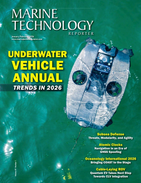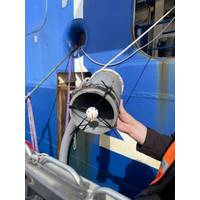
eDNA Analysis Detects Invasive Species from Biofouling
Antarctic scientists have trialed a DNA ‘barcoding’ technique that could improve biosecurity measures that help protect polar ecosystems from invasive marine species.The research, led by Australian Antarctic Program scientists, used environmental DNA (eDNA) in water samples, to detect species known to hitch-hike on ships’ hulls.The work was conducted during a voyage from Tasmania to sub-Antarctic Macquarie Island, on MPOV Aiviq in 2022.Molecular biologist Dr Leonie Suter said the research showed that eDNA sampling could help ensure effective biosecurity practices (such as hull
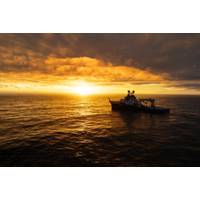
Argentina’s Deep Sea Is More Biodiverse Than Scientists Thought
team documented the largest known Bathelia candida coral reef in the global ocean, several other rich reef complexes, and 28 suspected new species, including worms, corals, sea urchins, sea snails, and sea anemones.Deep-sea corals are slow-growing and long-lived. They are often classified as Vulnerable Marine Ecosystems, or VMEs, because they support high biodiversity and are threatened by human activities such as bottom trawling. In this image, red and pink basket stars (Gorgonocephalus chilensis) perch on top of white hard corals (primarily Bathelia candida and Solenosmilia sp.). The sea stars and corals
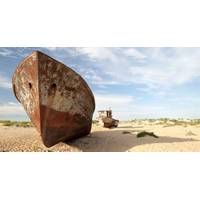
IMarEST Journey to Aral Sea Will Uncover Lessons from Central Asia’s Water Crisis
The Institute of Marine Engineering, Science and Technology (IMarEST) has awarded its David Henderson Inspiring Journey grant to Cadet Mohd Emaad Khan, from the Indian Maritime University in Kolkata. His expedition across Uzbekistan’s Aral Sea basin will uncover the lessons marine professionals can learn from one of the world’s most catastrophic ecological collapses. According to the United Nations, the Aral Sea, once the world’s fourth-largest inland sea, has shrunk to less than half its former size due to climate change and mismanagement. This July, Emaad will set out to
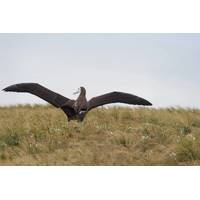
Study Identifies "Collision Map" For Birds, Boats to Support Conservation Efforts
gear is the biggest threat facing Antipodean albatrosses and many other seabird species. Our research provides the information that fishing management organizations need to improve their current bycatch prevention rules and take targeted action to help save bird species from decline," said PML Marine Earth Observation Scientist, Dr Peter Miller, who co-authored the study."We found that ocean patterns can predict where seabirds and fishing boats are most likely to overlap – and this works for birds of different ages and sexes. This approach could be applied to many other species and
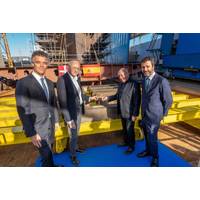
Freire Shipyard Celebrates Keel-Laying of Dana V Research Vessel
at its core. The vessel can operate on either biodiesel or electric batteries, switching between propulsion systems as mission requirements dictate, particularly for operations demanding silent navigation.Dana V will be a multidisciplinary research platform including research on fish stocks, marine ecosystems, ocean currents, and biodiversity variations. The design allows for studies on the interactions between biology, physics, and climate, as well as geological conditions of the seabed and water column.To support these missions, the Dana V will be equipped with advanced systems ensuring high-quali
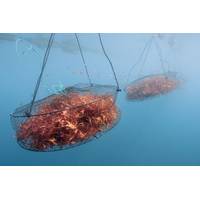
NYK Supports Marine Environment Restoration Project Through Seaweed Bed Initiative
enhancement through the development of cultivated seaweed beds. Utilizing Sea Vegetable’s advanced seaweed cultivation technology, NYK will assist in establishing cultivated seaweed beds along the coast of Oga City in Akita Prefecture, with the goal of ecological recovery and the regeneration of marine resources.A seaweed bed, an area densely populated with seaweed, serves as a crucial "marine nursery" that provides habitat and spawning grounds for various marine organisms. However, in recent years, the decline of seaweed beds has become a serious issue nationwide, largely driven by increased
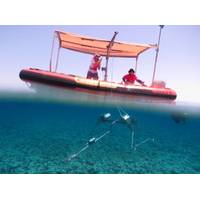
Lander Lab: Cost Efficiency of Baited Ocean Landers
Determining the diversity and distribution of species in an ecosystem is essential to creating a baseline for monitoring studies or to assess the success of conservation and restoration strategies. The methods for sampling marine and aquatic ecosystems can be inefficient and biased, such as diver operated video, or harmful to the environment and biodiversity, such as bottom trawls and seine nets. Both are time-consuming and expensive. Choosing an efficient and cost-effective sampling method to establish baselines and monitor biodiversity is an important consideration in an ecological study.Two non-invas
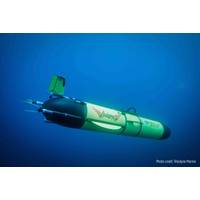
Underwater Autonomous Glider Departs to Circumnavigate the Globe
In a world-first for marine science and technology, Teledyne Marine in collaboration with Rutgers University-New Brunswick, will conduct a mission to circumnavigate the globe with an autonomous underwater glider.Using Teledyne’s ‘Redwing,' the near five-year Sentinel Mission departs on October 10, 2025 following a ceremony at Woods Hole Oceanographic Institution (WHOI), which operates the second largest glider fleet in the world.Launched from the edge of the continental shelf south of Martha’s Vineyard, Massachusetts, the Slocum Sentinel Glider will gather data on ocean
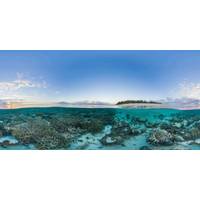
Coral Reef Discovered Off Naples
at a depth of more than 500 metres in the Gulf of Naples, in a rare discovery for the Mediterranean, the Italian Research Council (CNR) said on Friday.Known as the "rainforests of the sea", coral reefs are of great interest to sea scientists as they are among the richest marine ecosystems, hosting millions of species. They play a vital role sustaining marine life, but are under threat.The reef off Naples was found using a remotely operated submarine in the Dohrn Canyon, a deep marine valley just off the coastline of the southern Italian city, by an EU-funded
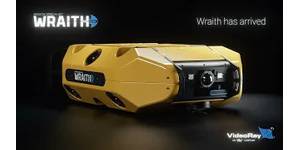
 February 2026
February 2026


